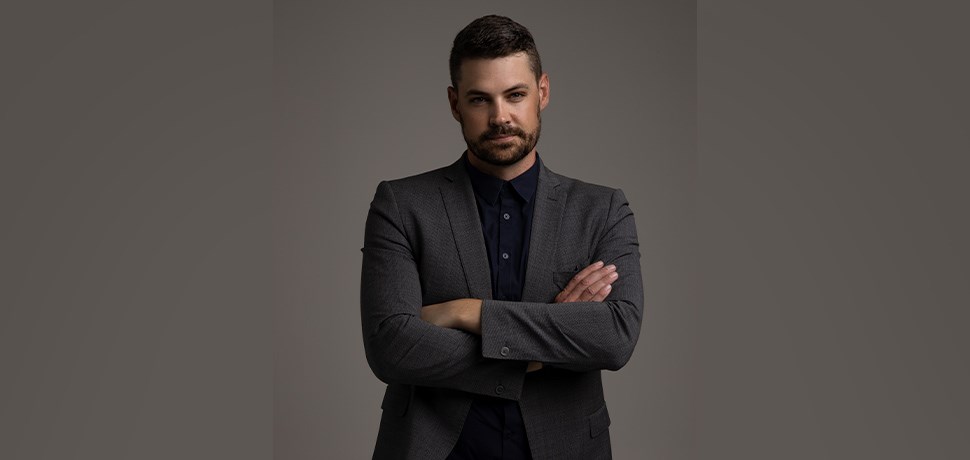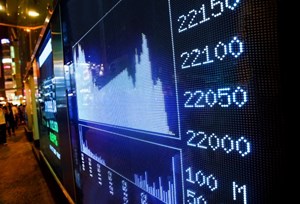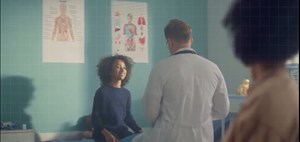Download Erik’s Leadership Manual 2022: The Art of Recalibration, here.
Listen to Erik Kruger and futurist John Sanei discussing the Art of Recalibration on The Expansive podcast, here.
Q: Why do leaders need to regularly review their organisations, how they operate and what their teams need from them?
The world has evolved into an incredibly complex landscape. Black and white doesn’t exist. There is no right and wrong when it comes to making the best decisions for a business. Everything is dependent on what is needed in that moment. What is perfect for today could be the wrong thing next week. This can sound scary but it’s actually an incredible opportunity. When something isn’t black or white, we tend to say it’s grey, but I prefer to think in colours. In everything we do there are blues and yellows, oranges and greens, which is another way of saying that there are so many ways to go about building businesses, leading teams, leveraging tools and collaborating with people. Of course, with so much to choose from, we must be mindful of what we do and why we do it, ensuring that what we are doing is aligned with where we want to go and that it makes sense in terms of the changes happening around us.
Q: How does the concept of recalibration support the decision-making process you are describing?
There have been massive shifts in how we define the things around us. Traditional definitions have been challenged and beliefs and assumptions have been shaken, revised and revisited. I started writing this year’s Leadership Manual with that in mind – we’re going through a great recalibration and leaders need the tools and mindsets to navigate it. And then I realized that it’s actually not a great recalibration. Instead, there is a continuous need for recalibrating. The pace of change will keep increasing and the ability to adapt to those changes is paramount.
Q: Is the ability to change one of the most important soft skills for the future?
Yes and no. Everyone can change. We’re all changing all of the time. What catches us off guard is when the need to change is fast and continuous. You haven’t settled into a new thing before the next one comes along, and you need to adjust what hasn’t even become second nature yet. The skill isn’t therefore the ability to change but learn to rapidly adjust to changes. What makes this powerful is that adaptation and recalibration is a skill that can be applied in any area.
Q: If we can all theoretically change, adapt and recalibrate, where do we fall short?
It all comes down to emotions. William Bridges explains this beautifully. He says that we all have to go through two journeys when change happens. The first is external – what we see happening in the world around us. But there is also an internal transition that has an ending, a middle and a new beginning.
This means that every time there is a change, we have to deal with an ending, and humans don’t like endings. It’s painful to say goodbye to something – even something that was no longer serving us or positive. And yet built into the process of change is that you have to leave where you are to get to where you need to be.
In the context of Covid this was a physical separation. We left the office and everything we identified in ourselves with that space – our morning routines, commute, our desk, the people we associated with at the office and how we dressed. The people we were ‘in the office’ no longer existed. We were all suddenly in the wilderness – the middle – figuring out who we were as ‘work from home’ employees. Only when we found who that person was, could a new beginning be embraced. What this means is that there cannot be a new beginning without an end. To recalibrate, we need to accept that, and since change is always happening, it’s an important idea to embrace.
Q: What is the one thing you hope leaders take forward in 2022?
Hold yourself a bit more lightly. There was a time when leaders had all the answers. That has changed. When we are rethinking, re-evaluating, reassessing, and reimagining on a continuous basis, it can be lonely, which isn’t necessary. No one expects you to do it alone. Recalibration is about having the awareness to say, is this working, should I change it, what destination am I heading towards and what outcomes do I want and am I getting? It’s difficult to answer these in isolation. Work with your team, a partner or a professional, but open yourself up to the idea of not doing it alone.
Teams also need the space to recalibrate because of the complex world we’re operating in. They’ll fail, learn, adapt and grow. A leader who does not hold themselves lightly cannot hold their team lightly.
Q: What is the biggest lesson you have personally learnt over the past 12 months?
That everyone is figuring this out. We like to look up to specific companies, best practice and leaders and think that they have everything figured out. We love lists about ten ways to do something. But the real lesson is that nothing is set in stone. So much is happening around us all the time. Hold yourself lightly, give yourself the space to be okay with things coming at you and expect to have all the answers. Recalibrations are about learning where to place your focus so that you can find the answers. We tend to want clarity because we think clarity will help us move forward quicker, but we rarely have perfect clarity. And these days even less so. Instead, finding clarity is like entering a dark room. You can’t see anything until you light a match. With that light, you can find and light your next match until eventually you have a handful of matches lighting up the room. This light lets you navigate to the next room and the next. But eventually the matches burn out and you have to start again. The room you see will also change each time, so the lesson is learning to light the matches and use the light you have wisely.




